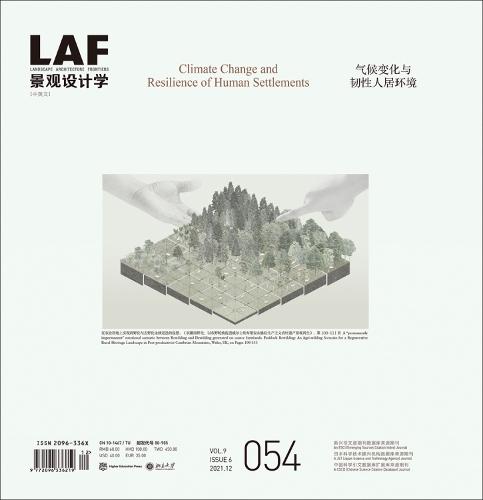
Landscape Architecture Frontiers 054: Climate Change and Resilience of Human Settlements
(Paperback)
Publishing Details
Landscape Architecture Frontiers 054: Climate Change and Resilience of Human Settlements
By (Author) Kongjian Yu
Oro Editions
Oro Editions
15th December 2022
United States
Classifications
General
Non Fiction
Environmentally-friendly (green) architecture and design
712
Physical Properties
Paperback
136
Width 279mm, Height 292mm
592g
Description
Climate change poses challenges for human survival and societal development, including frequent urban disasters such as high wave and urban waterlogging, as well as extreme weather events such as sea level rise, floods, tropical storm, wide-range drought, and high temperature in polar regions.
Contributed in part by reducing greenhouse gas emission, and also by the means of improving local resilience, the international community have been working on mitigating the uncertain impact of climate change. Against the backdrop of carbon reduction policy such as Carbon Emission Peak and Carbon Neutrality proposed by Chinese government, regional sustainable progress inevitably calls for resilient strategies for human settlements that address local issues upon climate change adaption and resilience theories. Since the impact of climate change on human settlements, risk and resilience assessment methods, and spatial and technological strategies have already broadly studied by international academia, more attention should be taken into research on spatial planning, urban design, landscape design, innovative engineering, emerging technology application, and interdisciplinary perspective to strive to realize the goals of peaking carbon emissions and achieving carbon neutrality.
To this end, this issue expects to discuss the resilient strategies adaptive to climate change for improve human settlements at varied scales. Introducing international perspectives, LA Frontiers encourages the bridging the latest research outcome with application and practice.
Author Bio
Kongjian Yu has a Doctorate in design from the Graduate School of Design, Harvard University, he is an Honorary Foreign Fellow of the American Academy of Arts and Sciences and professor at the College of Architecture and Landscape, Peking University. Song Liu is a professor and doctoral ssupervisor for the Department of Landscape Studies at the College of Architecture and Urban Planning, and Key Laboratory of Ecology and Energy-Saving Study of Dense Habitat, Tongji University. She serves as deputy director of Shanghai Engineering Research Center of Landscaping on Challenging Urban Site. Muge Komurcu is a climate scientist for the joint program on the Science and Policy of Global Change at the Massachusetts Institute of Technology. Rafi Segal is an associate professor of architecture and urbanism at the Massachusetts Institute of Technology. Nese Dogusan Alexander is an Architectural Historian, Independent Researcher. Harold L. Adams is the Endowed Associate Professor for the Department of Landscape Architecture and Urban Planning at Texas A&M University. Brett Milligan is an associate professor for landscape architecture and environmental design, in the Department of Human Ecology at the University of California, Davis. XI Xuesong is an associate professor at the College of Water Resource and Civil Engineering, China Agricultural University.
